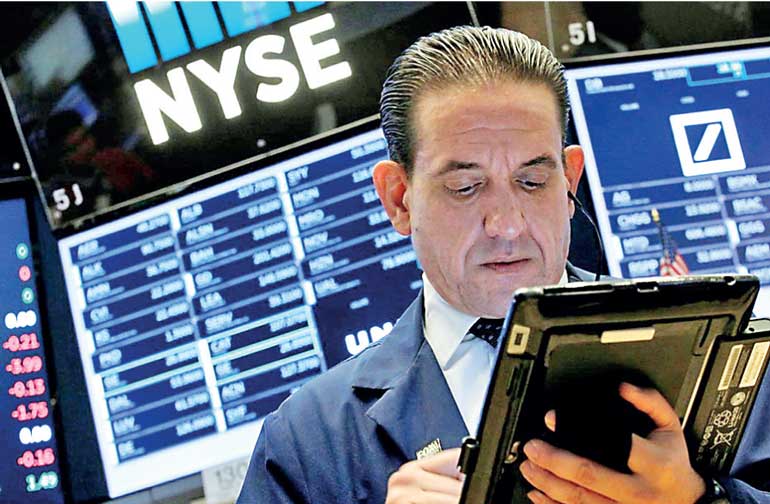Tuesday Feb 24, 2026
Tuesday Feb 24, 2026
Wednesday, 9 August 2017 00:00 - - {{hitsCtrl.values.hits}}
 London (Reuters): Global stocks inched up to a new all-time high on Tuesday, shrugging off weaker-than-expected China’s trade data that clouded an otherwise bright outlook for global growth.
London (Reuters): Global stocks inched up to a new all-time high on Tuesday, shrugging off weaker-than-expected China’s trade data that clouded an otherwise bright outlook for global growth.
Chinese imports and exports both fell well short of forecasts last month and growth in overall trade, while still a healthy 8.8%, was its slowest this year.
However, MSCI’s all-country world index ticked up to set a new record high at 480.76 points. It was last up less than 0.1% at 480.54 points.
The index, which tracks shares in 46 countries, is on track for longest monthly winning streak since 2003.
Shares across the globe have been hitting record highs in record low volatility supported by a benign environment for global growth.
Ratings agency Fitch this week lifted its outlook for the world economy for this year and next.
“Data continue to suggest a synchronised global expansion across both advanced and emerging market economies. Spill-overs from the rebound in emerging market demand are reflected in the fastest growth in world trade since 2010,” said Fitch chief economist Brian Coulton. European shares edged in and out of positive territory.
The pan-European STOXX 600 index was last down 0.1%, led lower by miners.
Energy company shares rose as oil prices steadied from recent falls as sources told Reuters Saudi Arabia would cut crude supplies next month.
MSCI’s broadest index of Asia-Pacific shares outside Japan proved relatively resilient, inching up 0.2% and back toward decade highs.
South Korea dipped 0.2%, while Japan’s Nikkei eased 0.3% and China’s main markets edged up 0.1%. Hong Kong’s Hang Seng closed up 0.6%.
In currency markets, the dollar dipped for a second consecutive day after rising on Friday following stronger-than-expected U.S. jobs numbers, which some analysts said bolstered the case for the Federal Reserve to raise interest rates further.
However, many in markets remain unpersuaded the Fed will increase the cost of borrowing again this year.
St Louis Fed President James Bullard said on Monday the central bank could leave rates where they are for now because inflation was not likely to rise much.
“(They) seemed to oppose further rate hikes. That means they exactly reflect the current market expectations, which are limiting the dollar’s appreciation,” wrote analysts at Commerzbank in Frankfurt in a morning note to clients.
“It is still inflation that poses the problem,” they added.
The dollar index was down 0.2%. The euro gained 0.2% to $1.1811 while the yen rose a similar amount to 110.54 to the dollar
Sterling was up 0.1% at $1.3045.
German 10-year government bond yields, the benchmark for borrowing costs in the euro zone, held close to their lowest in more than a month, supported by expectations that any withdrawal of European Central Bank stimulus will be gradual.
This view was boosted on Monday by data showing industrial output in the euro zone’s biggest economy unexpectedly fell 1.1% in June from a month earlier.
Brent crude oil, the international benchmark, rose 16 cents to $52.53 a barrel. An industry source familiar with the matter told Reuters Saudi state oil company Aramco will cut allocations to its customers next month by at least 520,000 barrels a day.
“Support is coming from a stabilising U.S. rig count, falling U.S. inventories and the Saudi cut in exports,” Ole Hansen, head of commodity strategy at Denmark’s Saxo Bank, told the Reuters Global Oil Forum.
“But against this we still have robust production growth from the United States, Libya and Nigeria.”
Gold rose 0.3% to $1,261 an ounce.